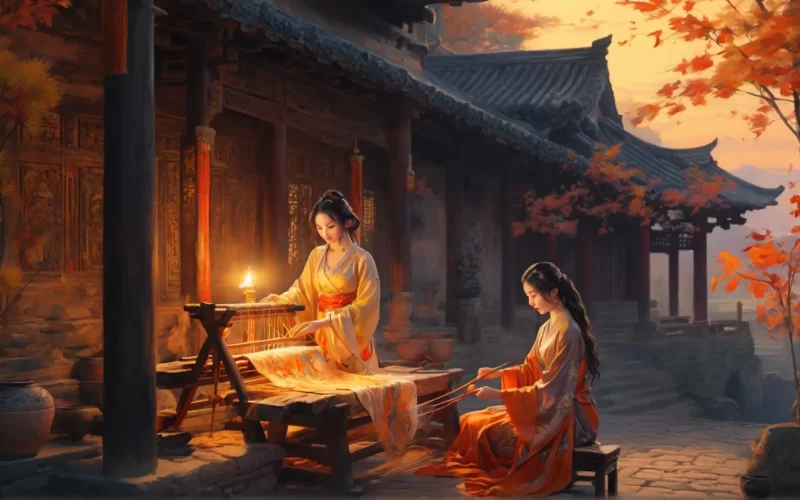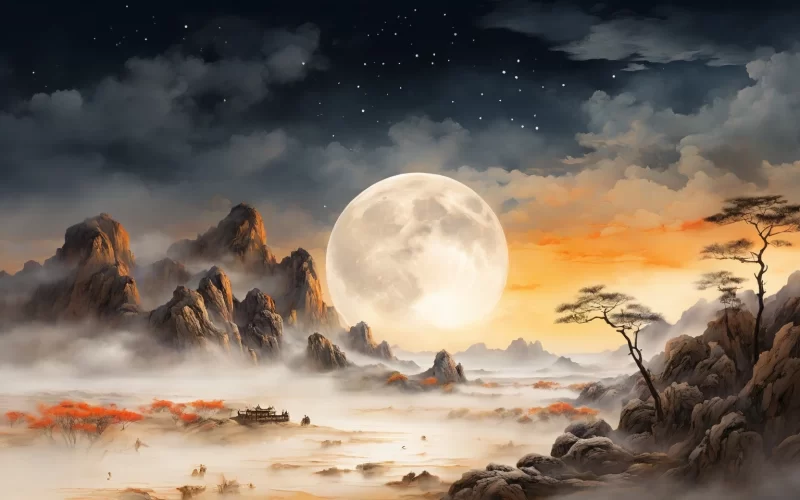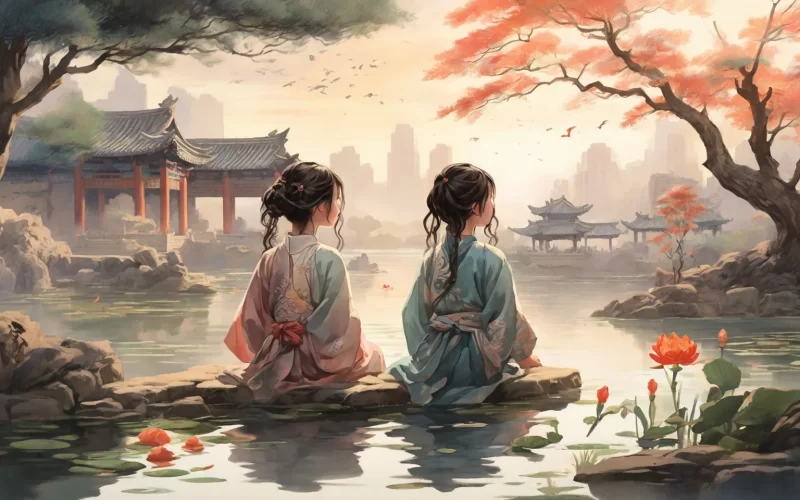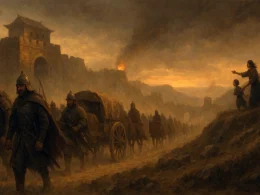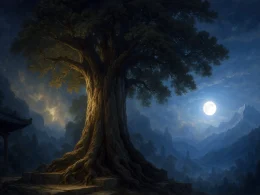A slip of the moon hangs over the capital;
Ten thousand washi ng-mallets are pounding;
And the autumn wind is blowing my heart
For ever and ever toward the Jade Pass...
Oh, when will the Tartar troops be conquered,
And my husband come back from the long campaign!
Original Poem:
「子夜吴歌」
李白
长安一片月, 万户捣衣声。
秋风吹不尽, 总是玉关情。
何日平胡虏, 良人罢远征。
Interpretation:
The Song Zi ye wu ge is an old folk song, which is a famous love song in the south of China during the Six Dynasties. It is mostly about a young girl’s longing for her lover, and expresses her sincere and lingering love. Li Bai’s “Wu Song at Night” consists of four songs, and this is the third one – “Autumn Song”. Through the description of women taking advantage of the moonlight night to make winter clothes for the expeditioners, the poet expresses their infinite nostalgia for their loved ones and urgent expectation for a peaceful life, as well as the poet’s tacit understanding and sympathy for the mistresses’ misfortune. The first four lines of the poem outline the scene of the
The first four lines of the poem outline the scenery, creating an ambience for the lyric: on an autumn evening, the moonlight covers the night sky of Chang’an, and the autumn wind is sullen, the sound of pounding garments keeps coming from every house, as people are busy preparing their winter clothes. From the sound of pounding clothes, the poet imagines that these women are preparing to sew robes for their husbands who are in the army, and that they are pounding clothes while remembering their husbands who are guarding the Jade Gate Pass. The last two lines of the poem are direct lyrical discussion, shouting out the common voice of the thinking women: when can we sweep away the hu captives, eliminate the war, the relatives to stop the expedition, the end of this turbulent life of separation? This is the desire for victory, but also the call for peace. Since this poem is different from the general poems that simply express the sorrow of love, it has been loved by people for its expression of the people’s yearning for peace through the mouth of a thinking woman.
Li Bai was a romantic poet, his poems were mainly composed in an impassioned and bold manner, but there was no lack of soft and gentle works, and the Song of Wu in the Night is an example of this. The whole poem starts with the scenery and then the language of love, weaving the autumn moon, the sound of autumn and the autumn wind into a natural realm, seeing the realm without seeing the people, but the people are just like the people in the realm. The language is natural, fresh, flowing, and clear.
Poem translator:
Kiang Kanghu
About the poet:

Li Bai (李白), 701 ~ 762 A.D., whose ancestral home was in Gansu, was preceded by Li Guang, a general of the Han Dynasty. Tang poetry is one of the brightest constellations in the history of Chinese literature, and one of the brightest stars is Li Bai.





